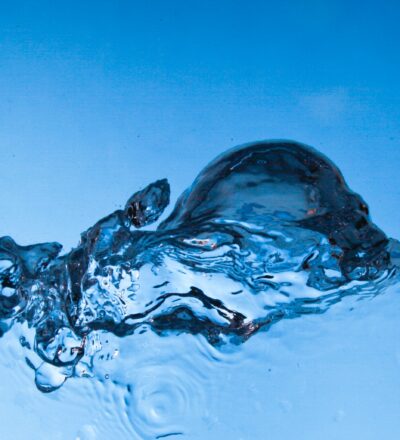Without drastic measures, the Netherlands will face large-scale water shortages by 2030. The transition to secure regional water supply and prevent water stress requires collaboration with all water stakeholders. ISPT therefore wants to establish a platform that facilitates the dialogue between companies, technology suppliers, governments and knowledge institutions. This dialogue is needed to realize the much-needed system change, which is necessary to make water savings possible in a sustainable and economical way.
Although the industry plays a crucial role in this transition, it can be significantly accelerated in collaboration with all water stakeholders. Where the industry is already carrying out various projects on its own site that contribute to more sustainable water use, such as water reuse, energy saving and reduction of chemicals, yet many challenges transcend the individual factory site. Important obstacles are discharge of concentrated (salt) streams (entailing complex permit procedures), high energy and emission costs associated to further purification, strict water quality requirements related Health and hygiene standards in product chains, and the availability of finances for investing in new process configurations and applied technologies.
The platform should not only define challenges but also proactively develop and implement solutions for water savings and optimized cascaded water use. It will drive action by engaging all relevant stakeholders to ensure the successful execution of strategies that maximize energy and resource efficiency while maintaining strict environmental, health, and safety standards.
Activities of the Platform Water Transition
1. Comprehensive stakeholder management
To build strong partnerships among industry, water boards, Rijkswaterstaat, drinking water companies, and public authorities. We create a unified approach by aligning stakeholders with regulatory requirements and streamlining permitting processes. We aim to connect with sector organizations (VEMW, VEWIN, Unie van Waterschappen) to enhance knowledge exchange, connect existing initiatives, and accelerate the deployment of solutions. This includes working groups on the national plan drinking water reduction and regional water transition groups.
2. Development of a joint water transition plan
In which policy and technology come together, development of smarter water cascading and symbiosis within and between sectors, leading to fit-for-purpose solutions where water quality is matched to the application. This includes innovative cross-sectoral water solutions, such as the use of effluent from the food industry as a source of drinking water. The plan should result in minimal waste of water, raw materials and energy, and valorisation of residual flows, such as the processing of brine. The platform may jointly define coherent applied research, development and innovation projects and programmes.
3. Removing implementation barriers
Actively identify and resolve regulatory, technical, and economic obstacles to water reuse and efficiency. Develop industry-wide best practices and advocate for supportive policies to facilitate large-scale adoption. Establish financial mechanisms and incentives to encourage investment in water-saving initiatives.
4. Focus on all sustainability issues
Water management is inextricably linked to other sustainability goals, such as energy efficiency, climate adaptation and nitrogen reduction. Reducing water use or intake often has an impact on other issues, such as:
- Energy consumption and emissions: Water purification requires energy, while purification and transport can increase CO₂ and NOx emissions.
- Salt concentrations: Strict guidelines limit the discharge of concentrated salt water, which requires innovative solutions.
- Spatial effects: The storage of water (such as rainwater) requires smart integration into regional water systems.
Collaboration is key to a sustainable future where water is not only a resource, but also a shared responsibility



